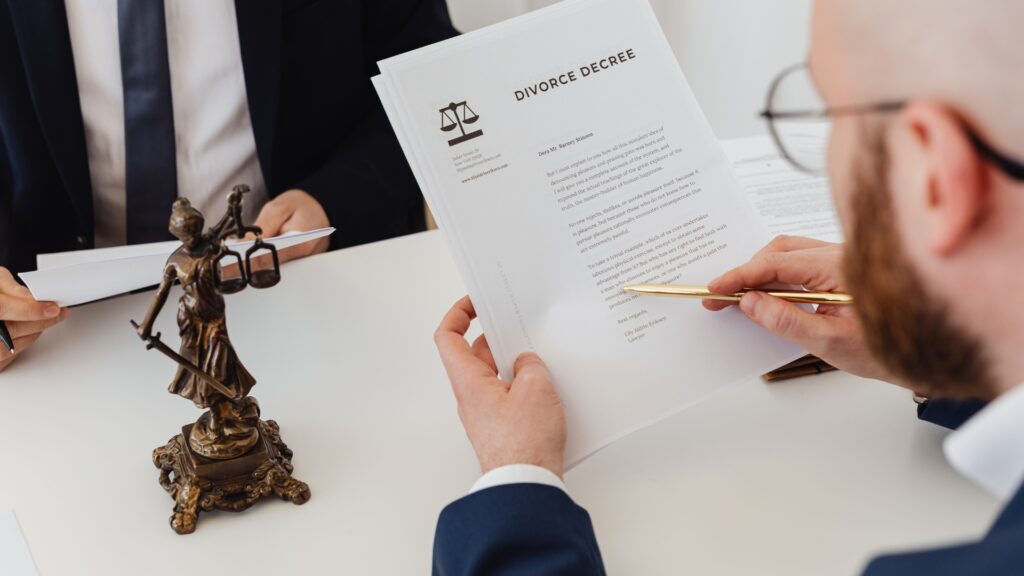When your divorce process is finalized, the court will issue a final divorce decree. This important document is not just a formality; it spells out the court’s decisions on essential matters like dividing property, custody of children, and spousal support. Reviewing this document carefully is essential to ensure it accurately reflects the agreements or court orders made during your divorce. Taking the time to thoroughly review and understand its contents can save you from future misunderstandings and complications. Here are six tips to help you effectively review your final divorce decree.
1. Understand the Purpose of the Final Divorce Decree
The final divorce decree is a legal document that officially outlines the terms of your divorce. It’s what you and your former spouse will need to follow regarding property division, child custody schedules, or spousal support payments. This document acts as a legal guide for your responsibilities and rights going forward, so it’s important to understand its purpose before you start reviewing the details.
Courts may also use the decree to settle disputes in the future. For example, if there’s confusion about parenting time or payment obligations, the decree is the point of reference. By knowing its significance, you’ll be better prepared to spot issues or request changes where needed.
2. Check for Mistakes in Your Final Divorce Decree
Accuracy is very important when reviewing your final divorce decree. You should check all the basic information, like names, dates, addresses, and any personal details. Errors, even small ones, can cause major issues. For instance, an incorrect name or address might delay notifications or enforcement of agreements. Also, make sure the terms of the decree match what was agreed on during the divorce or what the court decided.
If you find mistakes, contact your lawyer or the court immediately to get them fixed. Once the decree is finalized, correcting errors can take time and cost money. Addressing problems early will save you trouble later.
3. Look at Property Division Details
Property division is a major component of any divorce. The final decree will outline how property and debts are divided between you and your ex. This includes things like homes, cars, bank accounts, and retirement plans. Check to see who is responsible for paying off debts or transferring ownership of assets.
Pay attention to deadlines for completing these tasks. For example, if one of you is supposed to sell a house or transfer retirement funds, the decree should explain when and how this will happen. If something seems vague, ask for clarification. Ambiguity now can lead to conflict later.
4. Review Custody and Child Support Agreements
If you have kids, your final divorce decree will have sections about custody, visitation, and child support. Carefully check these parts to make sure they match what you agreed on or what the court decided. Look for details about parenting schedules, holidays, and special situations like school or medical needs.
Moreover, confirm the child support terms, including the payment amount, how payments will be made, and any conditions for changes. For example, some decrees allow adjustments based on changes in income or a child’s needs. These details are vital to ensuring both parents meet their responsibilities.
5. Understand Spousal Support Rules
For divorces involving spousal support, it’s important to review the decree’s terms carefully. Look for information about how much will be paid, when it will be paid, and for how long. The decree should also explain conditions for changing or ending support, such as if one person remarries or their income changes significantly.
In addition, check whether payment methods are clearly outlined, such as by direct deposit or check. Knowing exactly what’s expected helps you avoid confusion and protects your rights. If the other person doesn’t follow the decree, you’ll be in a better position to take legal steps to enforce it.
6. Talk to Your Lawyer
Even if everything seems fine, it’s a good idea to review the final divorce decree with your lawyer before agreeing to it. A lawyer can explain any legal language you don’t understand and make sure the document matches the court’s decisions. They can also point out potential problems that might not be obvious to you.
During this review, ask your lawyer to go through each section of the decree with you. Their insights can help you avoid pitfalls and give you confidence that everything is in order. They can also guide you in any next steps, like filing the decree with necessary agencies or setting up systems for payments.
Why Reviewing Your Final Divorce Decree Matters
Your final divorce decree is more than just paperwork—it’s a roadmap for your life after divorce. Taking the time to review it thoroughly can protect your interests and ensure you understand your responsibilities. By catching mistakes early and consulting with your lawyer, you’ll be better prepared for the future.
Knowing your decree inside and out helps you feel confident about moving forward. Whether it’s sticking to a parenting schedule or handling financial agreements, understanding your rights and obligations makes everything smoother. Following these six tips will help ensure your divorce terms are fair, clear, and enforceable, so you can start your new chapter with peace of mind.
Review your final divorce decree with care and start your new chapter confidently!




